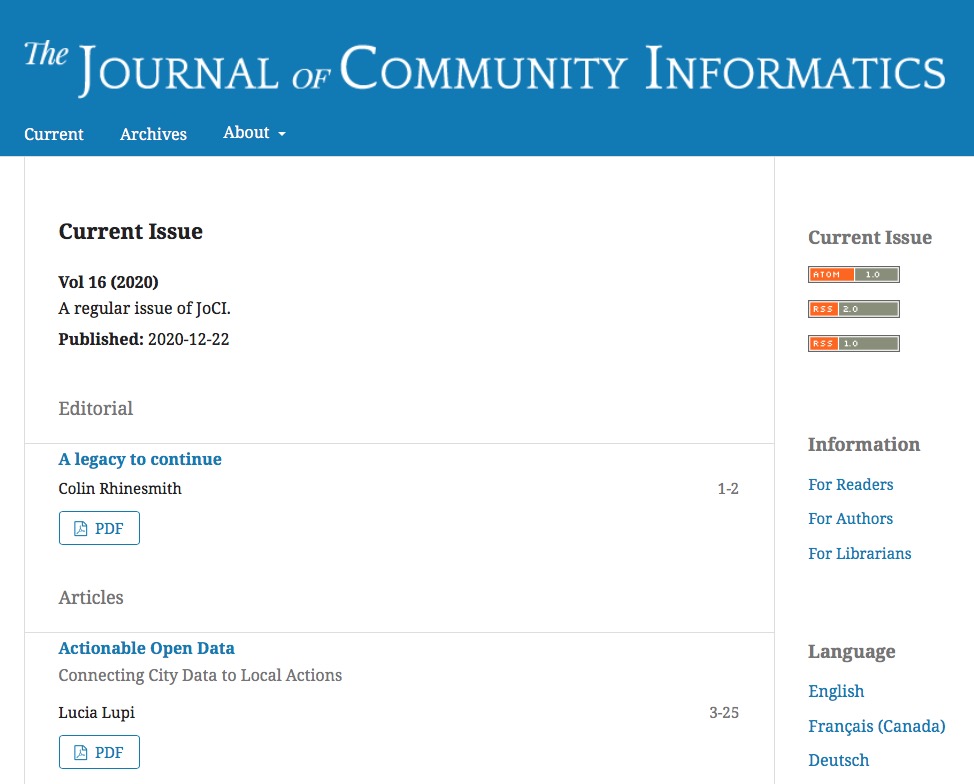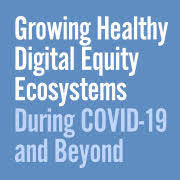It’s wonderful to be able to finally announce the new issue of the Journal of Community Informatics! The journal is also now hosted at the University of Waterloo Library and sponsored by the Simmons University School of Library and Information Science (iSchool).
There are many, many people to thank for this new issue and the Journal’s re-launch, particularly during such an incredibly difficult year. Many of whom I have included in my Editorial. I would particularly like to thank David Nemer, Tom Denison, Eduardo Villanueva-Mansilla, as well as Jordan Hale and Graham Faulkner at the University of Waterloo Library.
I am also grateful, of course, to the authors of this new issue for their patience during this transition to our new home at UW Library. I also want to thank our wonderful Editorial Board and other reviewers who contributed their time and expertise to help make this issue so strong.
The Journal is also accepting new Submissions from researchers and practitioners in the field of community informatics. To learn more, visit our new Journal website.




